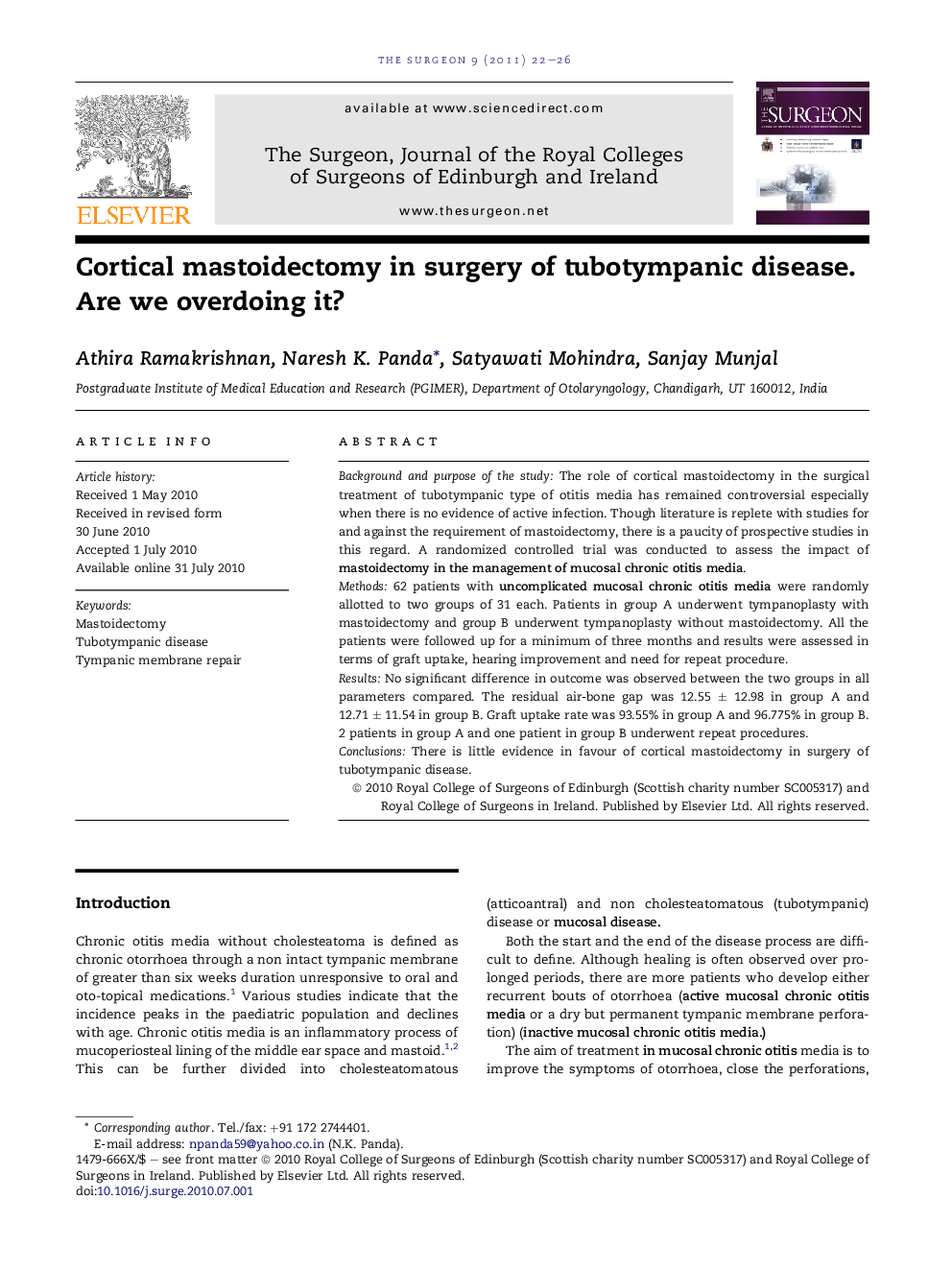| Article ID | Journal | Published Year | Pages | File Type |
|---|---|---|---|---|
| 3178925 | The Surgeon | 2011 | 5 Pages |
Background and purpose of the studyThe role of cortical mastoidectomy in the surgical treatment of tubotympanic type of otitis media has remained controversial especially when there is no evidence of active infection. Though literature is replete with studies for and against the requirement of mastoidectomy, there is a paucity of prospective studies in this regard. A randomized controlled trial was conducted to assess the impact of mastoidectomy in the management of mucosal chronic otitis media.Methods62 patients with uncomplicated mucosal chronic otitis media were randomly allotted to two groups of 31 each. Patients in group A underwent tympanoplasty with mastoidectomy and group B underwent tympanoplasty without mastoidectomy. All the patients were followed up for a minimum of three months and results were assessed in terms of graft uptake, hearing improvement and need for repeat procedure.ResultsNo significant difference in outcome was observed between the two groups in all parameters compared. The residual air-bone gap was 12.55 ± 12.98 in group A and 12.71 ± 11.54 in group B. Graft uptake rate was 93.55% in group A and 96.775% in group B. 2 patients in group A and one patient in group B underwent repeat procedures.ConclusionsThere is little evidence in favour of cortical mastoidectomy in surgery of tubotympanic disease.
